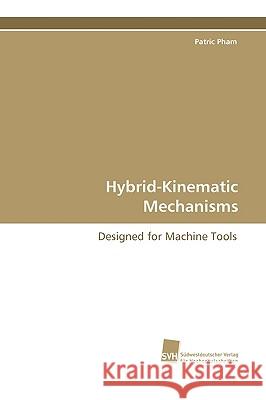Hybrid-Kinematic Mechanisms » książka
Hybrid-Kinematic Mechanisms
ISBN-13: 9783838105635 / Angielski / Miękka / 2009 / 228 str.
The kinematics of most machine tools are based on a serial arrangement of joints and segments, like a human arm. Todays requirements regarding dynamics, stiffness and precision brought science and industries to evaluate parallel-kinematic machines (PKM) for machine tool applications. The parallel arrangement of axes possesses a higher potential to fulfill these demands, and therefore allows a next level of machine performance. Whereas the success of PKM in packaging is incontestable, it proves to be less evident in machine tools. Their complexity and the low rotation amplitudes, the main weak points of PKM, slow down the integration of this kind of machines. In the last few years however, we could observe an increase in development, and more important, in the sales of hybrid-kinematic machines (HKM). HKM can, by appropriate combination of parallel and serial axes, present a well performing compromise. The present book is concerned with the industrialized, mechanical design of HKM and their mechanical elements, and shows that they can outperform fully-parallel mechanisms considering all attributes for a successful and industrialized machine design.











